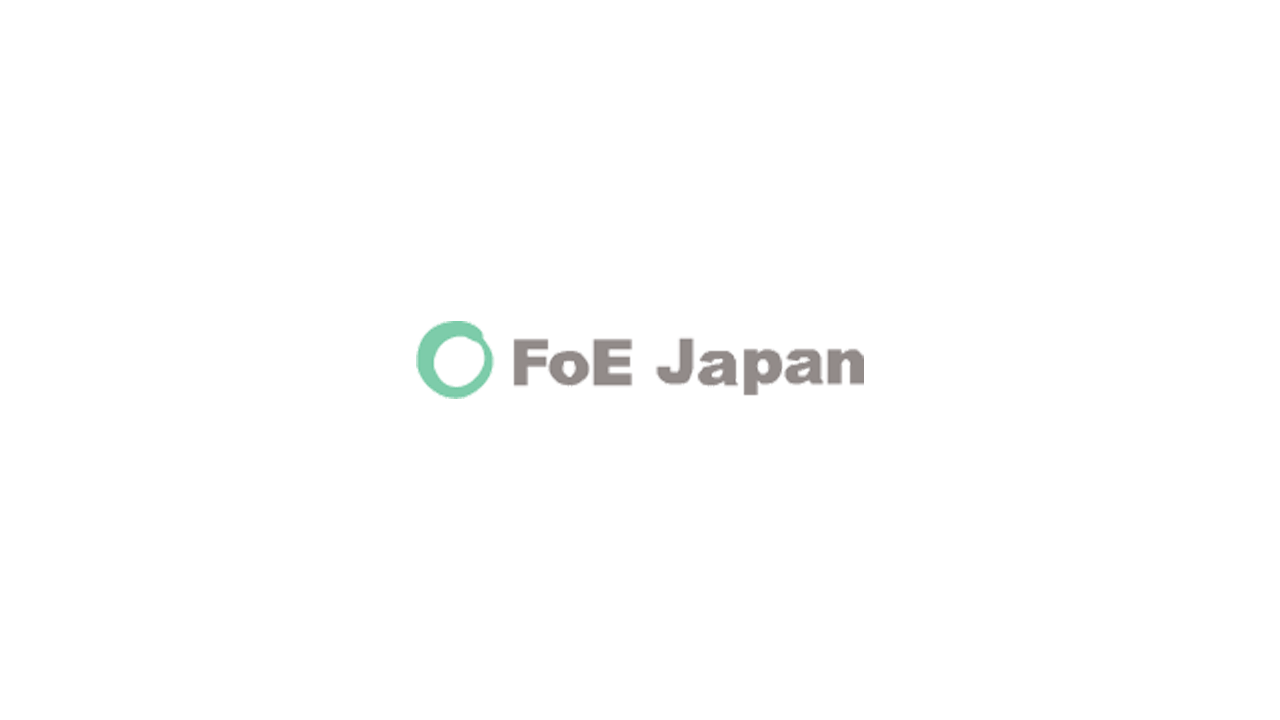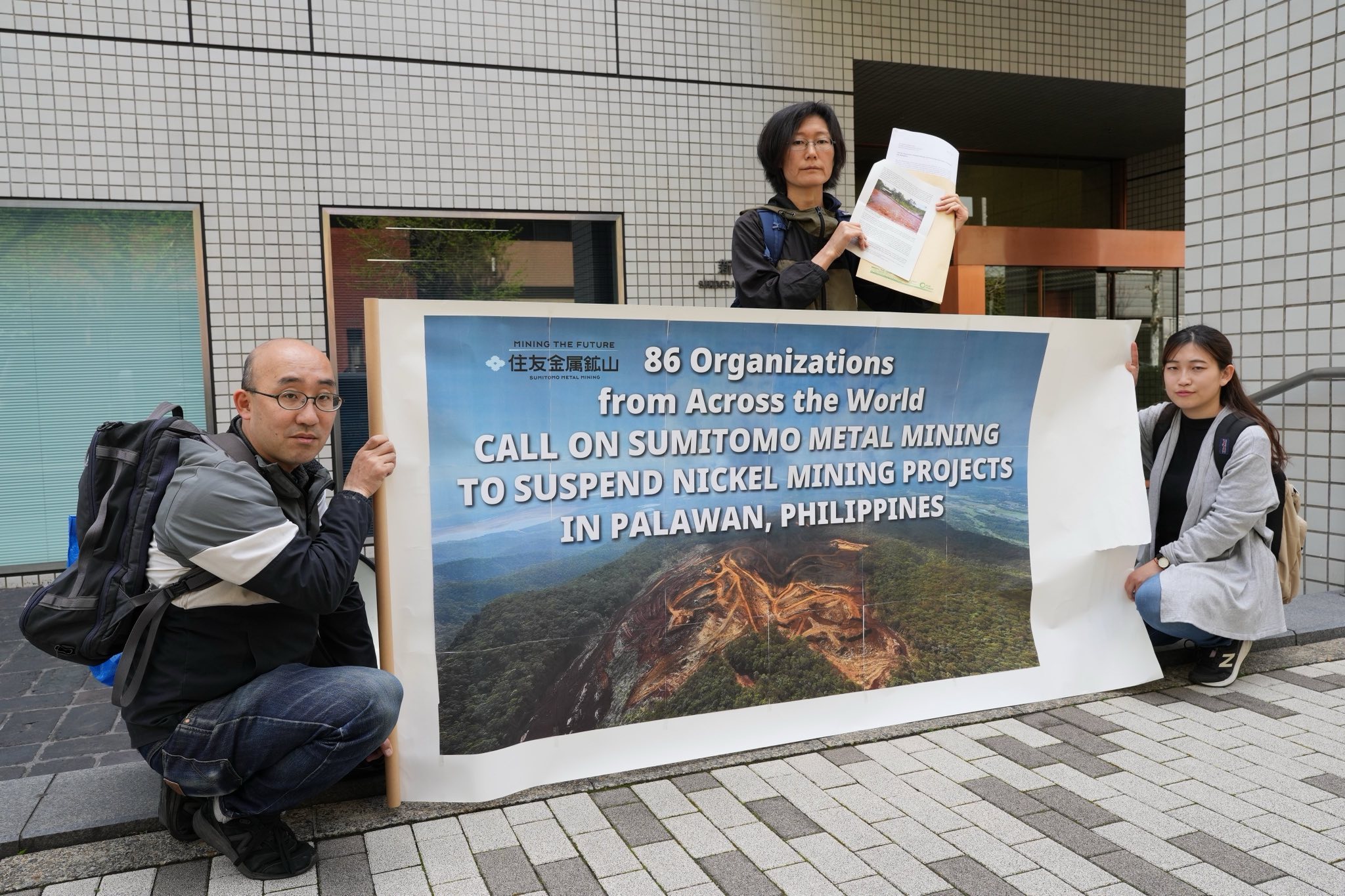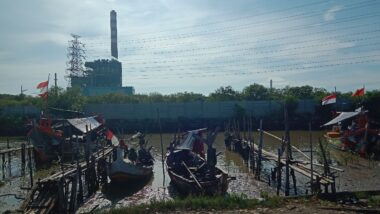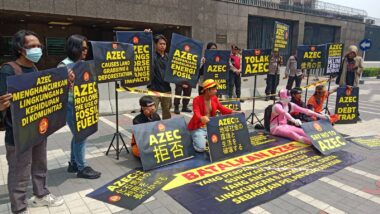Submission on the Review of ADB’s 2021 Energy Policy
On August 22, 2025, FoE Japan submitted comments and recommendations to the Asian Development Bank (ADB) regarding the ongoing review of ADB’s Energy Policy (2021).
For more details, please refer to the opinions below.
> PDF is available here
Submission on the Review of ADB’s 2021 Energy Policy
August 22, 2025
by Friends of the Earth (FoE) Japan
1. Comments and/or recommendations on the overall process to review ADB’s 2021 Energy Policy
In the ADB’s brief note, it is stated that the current review of the energy policy is “limited only to those amendments and additions to further support and accelerate the policy objectives.” However, these amendments and additions are likely to cause or continue to cause significant environmental, social, and human rights impacts on affected communities. Moreover, the amended policy includes elements that civil society has repeatedly raised concerns about and discussed extensively in the past—such as support for mineral resource development, continued use of fossil fuels, and support for nuclear power. We are deeply concerned that these elements are being decided with limited transparency and without inclusive and sufficient discussion.
The “Overall Schedule" currently presented is also rough, and it remains unclear how comments and discussions raised during the period between the publication of draft texts and the approval by the Board will be meaningfully reflected in the final text.
Therefore, in order for affected communities and civil society to participate meaningfully in this policy review process, it is essential that ADB ensures appropriate disclosure of information, transparency, accountability, and provides adequate and appropriate opportunities for consultation. As the final draft is scheduled to be released in September and approved by the Board in October, we strongly urge a revision of the timeline, which is currently far too rushed. The process should be carried out with a clear indication of the overall procedure for this policy revision—including the format, frequency, and timing of consultations, the timing of the release of draft and final drafts, and the schedule for Board consideration and approval.
2. Comments and/or recommendations on the proposed addition of “Critical Minerals and Clean Energy Technology Manufacturing”
As efforts toward energy transition advance, the development of critical minerals—which are in increasing demand—has been causing more on-the-ground issues and conflicts due to new or expanded mineral resource development, which have been seen in traditional development. In Asia, the people of the Global South, who are most often made to bear these burdens, are already in vulnerable positions due to the climate crisis,—resulting in a situation far from the realization of a “just” energy transition.
Moreover, development projects carried out under the name of energy transition are often rushed on the assumption that development will proceed, while the rights of Indigenous Peoples and affected communities to reject the project itself or to go through a proper FPIC (Free, Prior, and Informed Consent) process are neglected. This is of particular concern in countries such as the Philippines (nickel), Indonesia (nickel), and Fiji (copper). Serious human rights violations, such as extrajudicial killings and criminalizations, have also been reported against Indigenous Peoples and affected communities who raise their voices in opposition to such projects. While it goes without saying that environmental and social safeguards must be upheld during project development, ensuring FPIC through a proper process before development proceeds is of utmost importance.
Therefore, rather than promoting the development of critical minerals under the name of energy transition by recognizing its “potential role in this area,” ADB should shift its course toward an energy transition that does not further sacrifice the people of the Global South in Asia, who are already in vulnerable positions due to the climate crisis.
3. Comments and/or recommendations on the proposed addition of “Methane Leakages and Routine Gas Flaring Reduction”
Support for investments in methane leakage and routine gas flaring reduction in existing upstream oil and gas fields is likely to result in direct or indirect support to oil and gas corporations—large companies that continue to use and expand fossil fuel production. ADB’s valuable and limited public funding should be used to fulfill the historical responsibility of developed countries toward the Global South in addressing the climate crisis and not for bailing out corporations.
4. Comments and/or recommendations on the proposed amendment of “Accelerated Decommissioning of Coal-fired Heating and Oil-fired Power and Heating Plants”
Currently, ADB supports downstream oil and midstream and downstream gas projects under certain conditions. However, given ADB’s own acknowledgment of the need for early retirement of downstream oil and gas projects in this energy policy review, ADB should revise its stance and commit to ending all forms of support for oil and gas projects, including midstream and downstream.
In addition, regarding the use of ETM in the early retirement of coal-fired power plants, civil society and communities have raised numerous concerns and criticisms (e.g., the Cirebon coal plant Unit 1 in Indonesia and the Mindanao coal plant in the Philippines). Whether coal or oil-fired power plants, ADB must address these issues before moving forward with early retirement support under ETM. (Reference)
It is crucial to ensure meaningful participation by and full transparency and information disclosure for civil society as well as communities affected by existing plants. Addressing the environmental and social impacts that communities have already suffered from existing power plants is also fundamental to achieving a “just” energy transition.
Measures such as co-firing, fuel switching, and the installation of CCS/CCUS at existing power plants—which prolong the use of fossil fuels under the guise of “repurposing”—should not be included as part of ETM support.
Furthermore, the costs associated with stranded assets of existing thermal power plants should be borne by the large corporations that have promoted fossil fuel businesses and reaped enormous profits. The ETM should not be utilized as a bailout mechanism for these corporations.
5. Comments and/or recommendations on the proposed amendment of “Co-Firing in Coal and Gas Power Plants”
ADB must not support co-firing under any circumstances, even conditionally. The environmental and social impacts arising from the production and procurement processes of biofuels, green hydrogen, and green ammonia used for co-firing must be fully taken into account. Promoting the use of biofuels, green ammonia, and green hydrogen under the assumption that they are “clean” fuels disregards the life-cycle greenhouse gas emissions, as well as the environmental and social impacts on communities, and constitutes a form of greenwashing.
Forest-derived biofuels pose significant risks of deforestation, forest degradation, and land grabbing that lead to human rights violations during their production processes. Additionally, the expansion of industrial plantations exerts further pressure on the reduction of natural forests. Since this results in the release of carbon stored in forests and soils over many years into the atmosphere, such biofuels should not be supported. (Reference)
Green hydrogen is expected to be produced using renewable energy; however, diverting existing renewable energy facilities from their primary purpose of power supply to hydrogen production— to sustain the operation of thermal power plants—could be counterproductive, especially in regions where there is an ongoing demand for renewable electricity. Furthermore, projects labeled as “renewable energy” but without meeting the needs of local communities and characterized by high environmental and social burdens, such as large-scale hydropower, geothermal, biomass power generation, and mega solar or wind farms, should not be implemented. It is highly unlikely that the establishment of new renewable energy facilities for hydrogen production will be based on genuine community needs. Additionally, if the procurement of renewable energy for hydrogen production relies on the local power grid, there is a risk that mechanisms such as “renewable energy certificates” issued by local authorities may be used, resulting in hydrogen production that is partially supplied by electricity mixed with fossil fuel sources. (Reference)
Green ammonia, which is produced using green hydrogen, inherently carries the same issues described above. Furthermore, when existing ammonia production facilities are utilized, there is a risk that green ammonia will be co-produced and mixed with gray ammonia manufactured using conventional gas. Additionally, concerns remain regarding potential health impacts on communities due to ammonia leakage accidents during the production process. (Reference)
Instead of allocating ADB’s limited and valuable public resources to unproven and costly technologies such as ammonia or hydrogen co-firing, greater emphasis should be placed on supporting the early and appropriate decommissioning of existing power plants and financing renewable energy solutions that are feasible and aligned with the needs of local communities.
6. Comments and/or recommendations on the proposed amendment of “Carbon, Capture, Utilization and Storage (CCUS)”
CCS has been plagued by significant technical and financial challenges, environmental and health risks, energy inefficiencies, and unresolved issues related to long-term storage. In particular, the deployment of CCS in power generation and fossil fuel development extends the lifespan of fossil fuel infrastructure, thereby undermining climate mitigation efforts. For these reasons, CCS should not be supported under any circumstances.
CCS projects generally involve three main stages: the capture of CO₂ from emission sources, the transportation of CO₂ to storage sites, and its final injection into underground storage. The capture process is highly energy-intensive and frequently relies on the use of amines, which raise concerns regarding their potential impacts on human health and the environment. Transportation is expected to occur via pipelines or ships; however, a series of CO₂ pipeline accidents in the United States has raised serious concerns about their social and environmental impacts. Furthermore, the injection phase requires large-scale drilling, which can result in significant environmental disruption, and it necessitates extremely long-term monitoring to ensure that leakage does not occur over generations.
In addition, strong criticism has emerged from civil society regarding the proposed transport and storage of CO₂ captured in Japan to countries such as Malaysia and Indonesia (Reference). Given the many unresolved issues surrounding CCUS projects, ADB must refrain from providing irresponsible support and must avoid any assistance that would perpetuate or legitimize practices of waste colonialism.
7. Comments and/or recommendations on the proposed amendment of “Nuclear Power”
The current ADB Energy Policy explicitly states that the Bank does not finance nuclear power, citing risks related to nuclear proliferation, radioactive waste management, safety issues, and very high investment costs relative to ADB’s resources.. These risks and costs remain unchanged to this day. Nevertheless, no explanation has been provided as to why it would now be possible to revise this provision.
For the following reasons, the ADB should not provide any form of support for nuclear power, including technical assistance or investment financing. (Reference 1, Reference 2)
- Nuclear power generation releases radioactive substances into the environment at every stage, including uranium mining, fuel production and processing, operation, decommissioning, and spent nuclear fuel management. In the event of an accident, a wide area of the environment can become contaminated, causing significant social and economic damage.
- The costs are also extremely high. Recently constructed nuclear power plants in Europe and North America have each incurred costs amounting to several trillion yen (note). Furthermore, actual expenses have often ballooned to several times the initial estimates, resulting in substantial financial burdens and high cost overrun risks.
- Spent nuclear fuel requires management over an extremely long time frame. Even in advanced countries, most have yet to identify final disposal sites.
- The selection of sites for nuclear power facilities and spent nuclear fuel disposal is generally imposed on vulnerable communities, causing serious social divisions.
- There are risks related to nuclear proliferation, military diversion, and terrorism.
- Nuclear facilities also pose a risk of becoming targets for military attacks.
- Many countries lack adequate legal frameworks for nuclear safety regulation and nuclear liability.
- Due to concerns related to terrorism and security, information is sometimes withheld, making it unlikely that proper social consensus can be achieved under such circumstances.
- This also hinders the deployment of renewable energy.
- The risks and costs will be borne not only by the current generation but also by future generations.
- The ADB lacks the capacity to adequately review and monitor nuclear-related projects.
ADB states that if Developing Member Countries (DMCs) choose to pursue nuclear power, the Bank will provide support such as capacity building and institutional development. However, offering such support without resolving the various aforementioned issues is irresponsible.
Furthermore, the scope of ADB’s support remains unclear. It is imperative to clarify the extent and conditions of ADB’s assistance, including whether financing will be provided for individual nuclear power projects.
Note: The Vogtle nuclear power plant in the United States reached a cost of $15.5 billion, the Olkiluoto plant in Finland €11 billion, and the Flamanville plant in France €13.2 billion.




